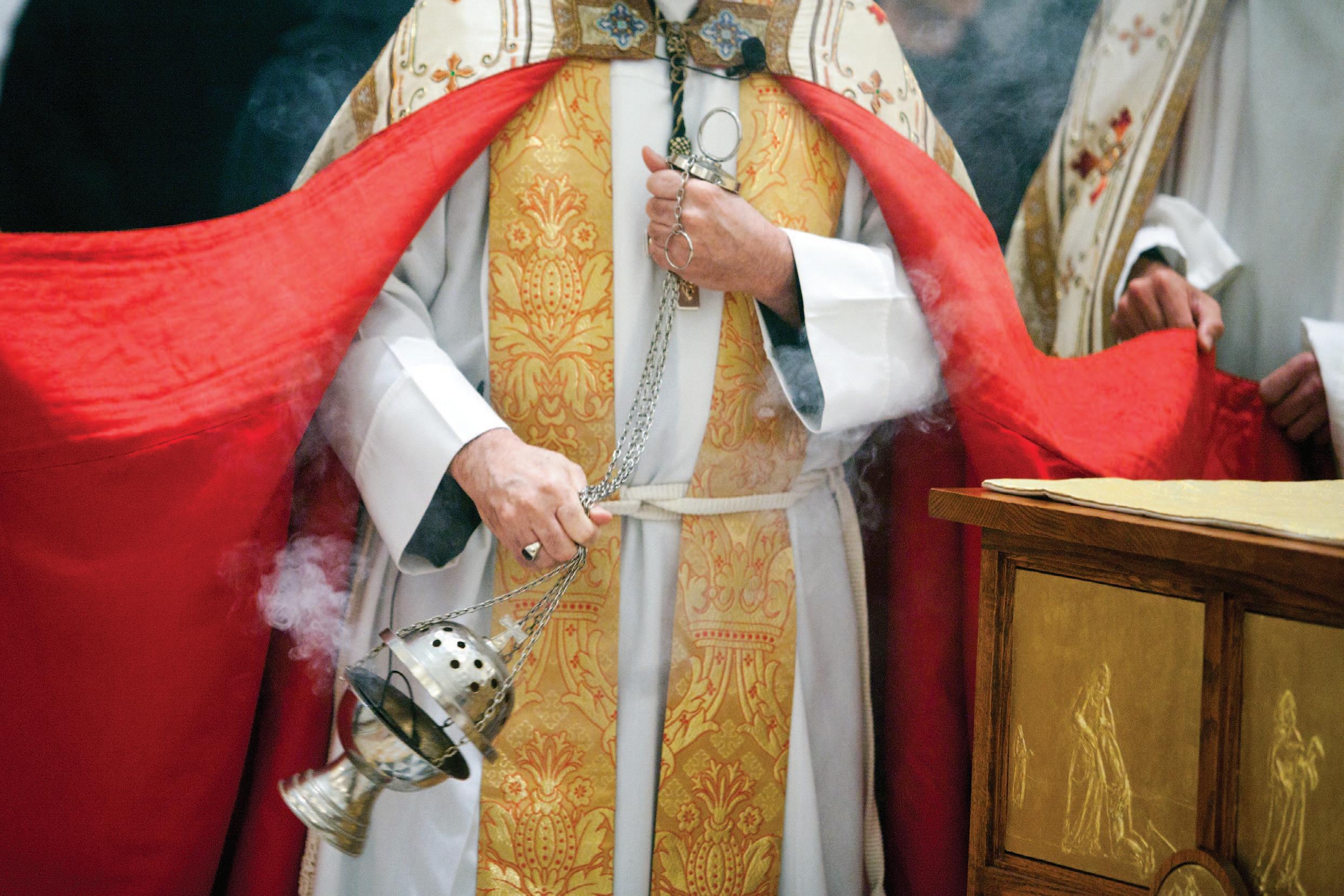

TheGift Planner
Trusts:
A valuable tool for estate planning

When it comes to estate planning, a trust can be a useful tool for the management and transfer of property. Trusts can also be very broad and complex. We talked with John Chappell, attorney at Bingham Greenebaum Doll, LLP in Jasper, IN, to learn more about trusts and how they can be used for charitable giving.
“A trust is simply a fiduciary relationship where a person – a trustee – holds title to property for the benefit of somebody else, called a beneficiary,” explains John.
John practices in the areas of real estate, estate planning and probate law. He earned a bachelor’s degree in 1969 and juris doctor degree in 1972, both from Indiana University. He also served on the Saint Meinrad Seminary and School of Theology Board of Overseers for 18 years and was elected as an emeritus member in 2019.
There are three positions people hold when it comes to trusts: the grantor (also called the trustor or settlor), the trustee(s), and the beneficiaries. The grantor transfers ownership of certain
assets or property to a trustee, and the trustee manages and distributes those assets for the benefit of the beneficiaries.
There are many types of trusts, but they are all either revocable or irrevocable. Revocable trusts can be changed or amended, while irrevocable trusts cannot be changed after being created, except in rare circumstances.
Trusts have several advantages: they offer privacy since they are not public record and they do not go through the long and sometimes expensive probate process. In addition, trusts can provide protection against creditors and are customizable.
The grantor can create parameters around how and when the assets are distributed to the beneficiaries.

John Chappell

Control is in Your Hands

Dear Friends,
As I write this, it’s very cold outside and we are looking for colder weather yet. But by the time this Gift Planner reaches you, it is my prayer that warmer weather will be here and we’ll be enjoying spring.
Saint Meinrad is blessed with many wonderful friends and benefactors, and you support us in different ways. This edition of The Gift Planner discusses one of those topics that can seem terribly complex but, with the right help, can actually be simple.
Our good friend John Chappell has taken the time to discuss the topic of trusts. Trusts are one of those estate planning instruments that may not be for everyone, but they can be useful tools in managing your estate plans.
John makes the topic understandable and approachable. If this sounds like something you would be interested in exploring further, please reach out to your own attorney. He or she can help you decide if a trust is right for you.
Please remember that you are in the prayers of the monastic community as we gather to pray five times each day.
May God continue to bless you abundantly,

“It is almost unlimited as to how you can control the property,” explains John. “You can use the trust to control your property from the grave, because in Indiana, you can keep it in trust for almost up to 90 years. You can control who gets that property, when they get it, and how they get it.”
John provided a couple of examples of when a trust could be useful and some parameters a grantor could place on a trust.
1.Sometimes the beneficiaries of an estate are minor children. The only way a child under age 18 can deal with the property is to have a guardianship established. If you have an estate of $500,000 and the property is left to two surviving children, when they turn 18, each receives $250,000. To prevent the children from spending it all, the grantor can create a trust with parameters, such as the child gets a third at age 18, a third at age 25, and the rest at 30.
2.Occasionally, a beneficiary will have a problem such as a drug, alcohol or gambling addiction. The grantor can create parameters around the trust that say the beneficiary is not entitled to the property until he/she enters a rehabilitation program and is shown to be recovered.
3.The beneficiary could be mentally, physically or financially incompetent. The grantor can create parameters where the property stays in a trust for the beneficiary’s life, but the trust is used to cover the beneficiary’s living expenses.
A Tool for Charitable Giving
Trusts can also be a valuable tool for charitable giving. A charitable trust is a way to set up your assets to benefit you, your beneficiaries, and a charity at the same time.
There are two types of charitable trusts, a charitable remainder trust and a charitable lead trust. Both
“Trusts are not for everyone. However, for many people, trusts can be useful tools to accomplish any number of goals for your financial and estate planning. Because every state in the country has different laws and regulations governing trusts, it is very important that, if you are considering this tool, you consult with your legal and financial advisors.”
Michael Shumway Director of Planned Giving and Foundation Relations

Rt. Rev. Kurt Stasiak, OSB Archabbot of Saint Meinrad
types of trusts are irrevocable and reduce the estate through charitable donations, which help reduce estate taxes.
The charitable remainder trust first provides income to non-charitable beneficiaries for a set amount of time. At the end of the designated time, the remainder of the trust goes to charity. The donor receives an immediate income tax charitable deduction when the trust is funded, based on the present value of the assets that will go to the charity.
The charitable lead trust first provides financial support to one or more charities for a period of time, with the remaining balance going to a non-charitable beneficiary.
John says when a person dies, the only way he or she can benefit
Saint Meinrad, or any other charity, is to have a bequest in their will or a distribution from their trust. To learn more about trusts, he suggests seeking the advice of a competent, experienced professional who specializes in trusts.
“A trust is a tool that can benefit anybody, no matter how wealthy they are,” he explains.
The information provided in this article does not, and is not intended to, constitute legal advice; instead, all information, content, and materials available in this article are for general informational purposes only.
Readers of this article should contact their attorney to obtain advice with respect to any legal matter. ◆



Neither the author, the publisher, nor this organization is engaged in rendering legal or tax advisory service. For advice or assistance in specific cases, the services of an attorney or other professional advisor should be obtained. The purpose of this publication is to provide accurate and authoritative information of a general character only. Watch for tax revisions. State laws govern wills, trusts and charitable gifts made in a contractual agreement. Advice from legal counsel should be sought when considering these types of gifts. © Saint Meinrad Archabbey, 2022.



